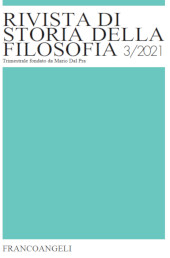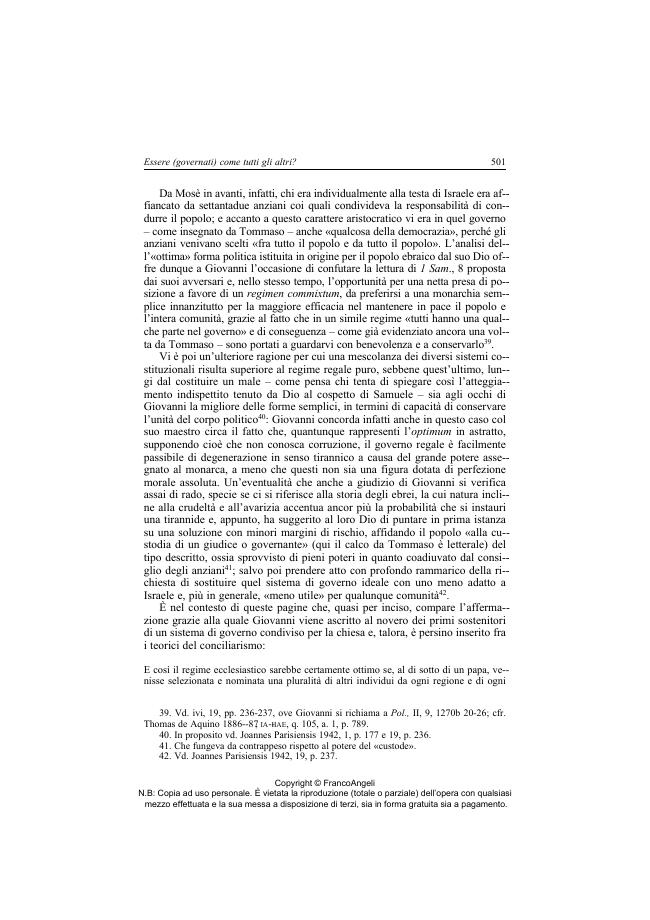Essere (governati) come tutti gli altri? : il contributo dell'esegesi di 1 Samuele, 8 alla teologia politica tardomedievale
491-510 p.
The end of God's prophetic reign over his people and Israel's demand to be ruled by an earthly king "like all other nations" represent a real turning point in the political and religious history of the Jews.
The aim of this paper is to reconstruct how the events narrated in the First Book of Samuel have been interpreted by some of the most important political thinkers of the late Middle Ages: from John of Salisbury, whose reading of 1 Sam, 8 is functional to a reflection on the origin and nature of tyranny, to those who, like Thomas Aquinas, refuse to see in God's angry reaction to Samuel's request an indiscriminate condemnation of any earthly monarchy; from Ptolemy of Lucca, whose interpretation of that biblical passage seems to exclude a fully legitimate monarchy, to John of Paris, John Wyclif and John Fortescue, who use it, respectively, to take a clear stand in favour of a regimen commixtum, to question the promonarchical attitude dominant at that time, and to prove the superiority of a "political and royal" system of government. [Publisher's text].
Fait partie de
Rivista di storia della filosofia : LXXVI, 3, 2021-
Articles du même numéro (disponibles individuellement)
-
Informations
Code DOI : 10.3280/SF2021-003007
ISSN: 1972-5558
KEYWORDS
- divine kingdom, Israel, royal government, despotic regime, mixed constitution



